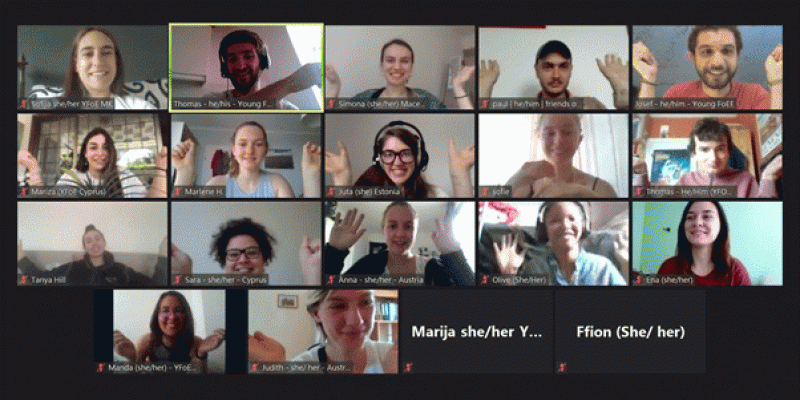Marija from YFOE Macedonia
As a member of the Young Friends of the Earth Europe network for some time now, it has always been a pleasure to attend trainings and events with some amazing participants from the network. However, this year things were a bit different, as we couldn’t see each other face-to-face and share an experience familiar to us.
In the midst of a global pandemic and all of us figuring out how to work and communicate from our homes, in different settings and feelings from before, I am especially happy that I attended the online training sessions of YFOEE’s the System: Reset project that took place in the beginning of June this year.
One interesting session for me was the session for the Commons as part of the Organizing Training by the inspiring Iva Markovic as it gave me a deeper understanding of the commons. The sessions consisted of some useful theoretical points of the commons followed by examples and experiences of organizing in the community, particularly the story of the brave women of Krushica River in Bosnia and Hertzegovina.
A definition of the Commons:
“Commons are a social practice of governing a resource not by a state or market, but by a community of users, that self-governs the resource by institutions it creates.”
Therefore, commons can be a cultural and/or natural resource that is accessible to all members of the society, including natural resources like water, air and a habitable earth. The resources are held in common and are not privately owned. Commons can also be understood as natural resources that groups of people (such as communities) manage for individual or collective benefit.
The knowledge and work of the commons can be a good guidance for the future work of our group while implementing the intersectionality principles and giving a voice to those that need it the most. And as part of the #System:ResetProject we are looking forward to giving a platform to the communities around our country and joining in the fight for the commons and protecting our most valuable resources.
If you want to know more about our System:Reset Project and our New Working Group on European Green Deal, contact us at josef.boraei@foeeurope.org
Further reading on the commons & intersectionality:
Garret Hardin, Tragedy of the Commons
Elinor Ostrom’s 8 Principles for Managing A Commons
YFoEE Equality and Interculturalism Manifesto
YFoEE Toolkit for Intersectional Movement Building
***


